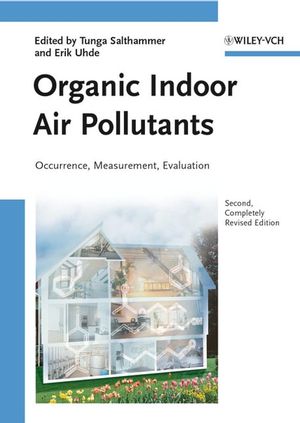Organic Indoor Air Pollutants: Occurrence, Measurement, Evaluation, 2nd EditionISBN: 978-3-527-31267-2
Hardcover
464 pages
October 2009
 |
||||||
With the quality of indoor air ranking highly in our lives, this second, completely, revised edition now includes 12 completely new chapters addressing both chemical and analytical aspects of organic pollutants.
Sources of indoor air pollutants, measurement and detection as well as evaluation are covered filling the gap in the literature caused by this topical subject.
This book is divided into four clearly defined parts: measuring organic indoor pollutants, investigation concepts and quality guidelines, field studies, and emission studies. The authors cover physico-chemical fundamentals of organic pollutants, relevant definitions and terminology, emission sources, sampling techniques and instrumentation, exposure assessment as well as methods for control. Test methods and studies for various indoor environments are described, such as automobile interiors, museum environments, or rooms with air ventilation. Emission sources covered include household and consumer products as well as electronic devices and office equipment.
The book is aimed at chemists, physicists, biologists, and medical doctors at universities and research facilities, in industry and environmental laboratories as well as regulative bodies.
Sources of indoor air pollutants, measurement and detection as well as evaluation are covered filling the gap in the literature caused by this topical subject.
This book is divided into four clearly defined parts: measuring organic indoor pollutants, investigation concepts and quality guidelines, field studies, and emission studies. The authors cover physico-chemical fundamentals of organic pollutants, relevant definitions and terminology, emission sources, sampling techniques and instrumentation, exposure assessment as well as methods for control. Test methods and studies for various indoor environments are described, such as automobile interiors, museum environments, or rooms with air ventilation. Emission sources covered include household and consumer products as well as electronic devices and office equipment.
The book is aimed at chemists, physicists, biologists, and medical doctors at universities and research facilities, in industry and environmental laboratories as well as regulative bodies.



